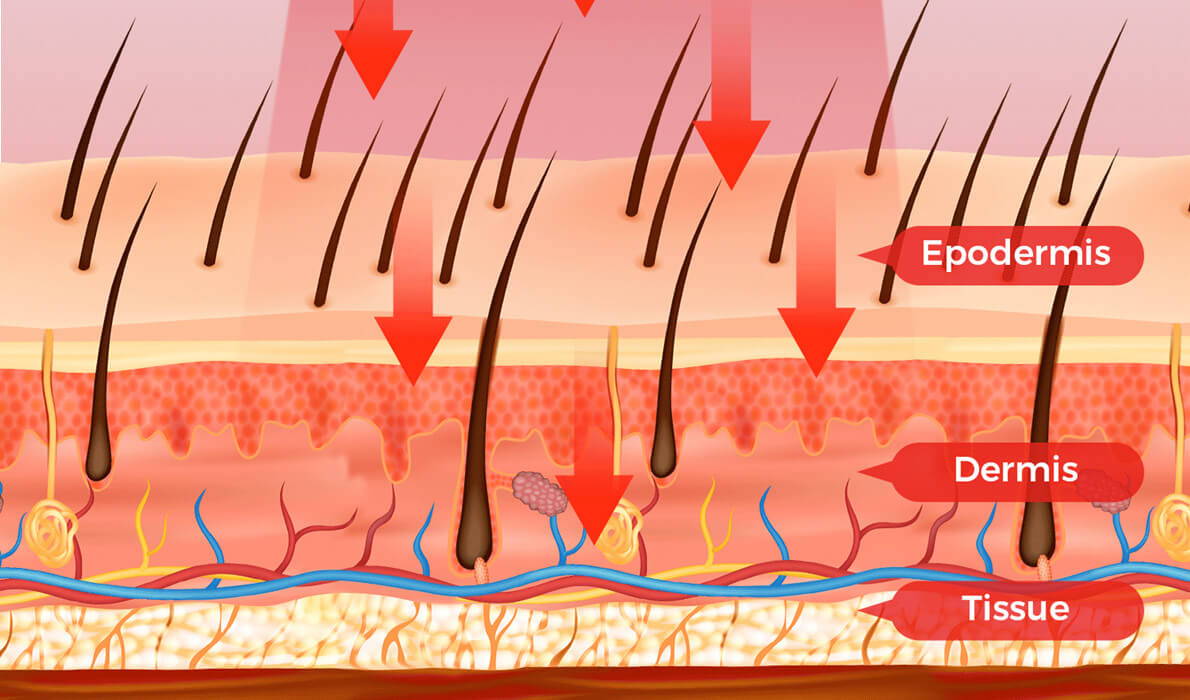Why Our Laser Helmet Isn’t for Every Skin Type
Why Our Laser Helmet Isn’t for Every Skin Type
Low-Level Laser Therapy (LLLT) at 650nm has become a popular non-invasive solution for promoting hair regrowth. It’s FDA-cleared, backed by studies, and widely praised for being painless and convenient. However, at Wellue, we prioritize safety and transparency above all else — which is why we do not recommend our laser hair growth helmet for individuals with Fitzpatrick skin types V and VI.
This blog explains why this recommendation exists, and what it means for customers with darker skin tones.
How Does LLLT Work?
LLLT (Low-Level Laser Therapy) at 650nm wavelength uses red light to penetrate the scalp and stimulate mitochondrial activity, increase blood circulation, and reactivate dormant hair follicles. It’s safe and effective for most users — but skin tone affects how light energy is absorbed.
Why Fitzpatrick Skin Types V & VI Are Not Recommended
Darker skin tones have higher melanin concentration, which affects how red light is absorbed. This creates two potential concerns:
1. Reduced Light Penetration
- Melanin competes with hair follicles for light energy.
- More laser energy is absorbed at the surface of the skin, less reaches the follicle.
- This may reduce the effectiveness of the treatment.
2. Potential for Overheating or Irritation
- Excess absorption of laser energy by melanin can lead to localized heating.
- This could result in discomfort, redness, or hyperpigmentation, especially with prolonged use.
While rare, we take a cautious approach to ensure no harm is caused to sensitive skin types.
Is It Unsafe for Darker Skin?
Not necessarily — but because clinical testing for laser hair growth devices has historically focused on lighter skin tones, there is limited safety and efficacy data for Fitzpatrick types V and VI.
We believe in honest disclosure, rather than overselling universal compatibility.
Our Commitment to Safety
At Wellue, our FDA-cleared devices are tested under strict conditions. Since LLLT is a light-based technology, we follow regulatory and clinical guidance closely. Until there’s more robust data for darker skin tones, we will continue to err on the side of safety and recommend against use for Fitzpatrick V and VI.
Are There Alternatives?
If you have a Fitzpatrick V or VI skin type and are seeking hair regrowth solutions, consider:
- Topical treatments like minoxidil (FDA-approved)
- Natural oils like rosemary oil or caffeine-based serums
- Consulting a dermatologist for treatments like PRP (platelet-rich plasma) or microneedling, which are less light-dependent
We also encourage following our updates — as future models or technologies may expand skin tone compatibility.
Final Thoughts
We understand this limitation may be disappointing — but our priority is your safety, comfort, and informed choice. Transparency is part of responsible innovation.
If you have questions or would like help finding an alternative that suits your needs, our support team is here for you.



